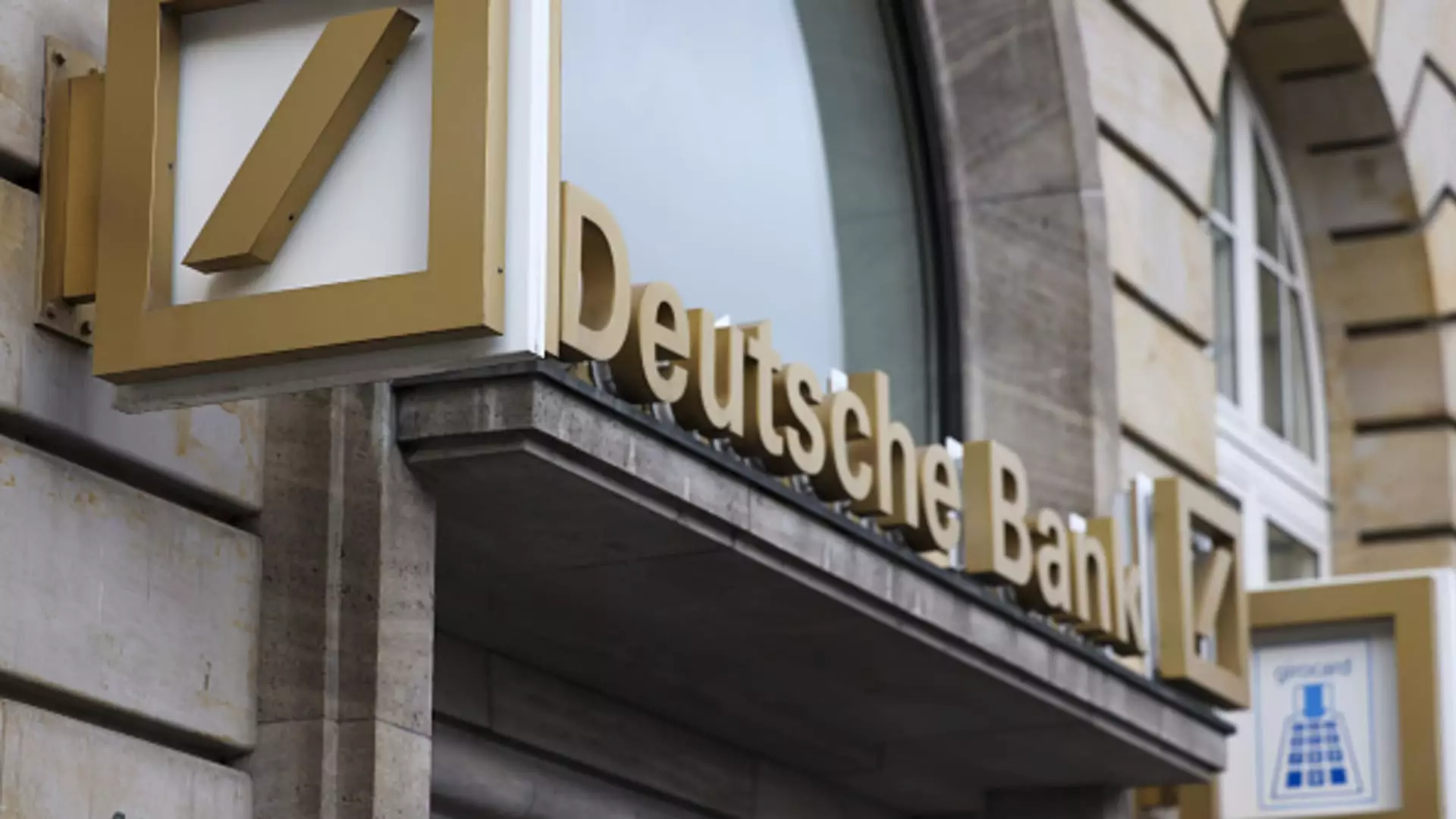Deutsche Bank’s recent financial disclosures have painted a gilded picture of success against a backdrop of impending economic turbulence. The bank’s impressive rise in net profits—up to 1.775 billion euros—marks a 39% increase year-on-year, surpassing analyst expectations by a significant margin. While headlines trumpet these figures, one must be cautious of reading too much into this apparent success. This surge largely hinges on the robust performance of its investment banking sector, which has proven to be a double-edged sword in recent times. Is it wise to celebrate profit, or should we scrutinize the underlying factors bringing these gains?
With revenues reaching a noteworthy 8.524 billion euros, the narrative seems particularly bright. The reports suggest that the bank’s core investment operations, from fixed income to currencies, are soaring. However, a deeper analysis reveals a troubling dichotomy: the declining performance in origination and advisory services. This shortfall raises an alarming question—are we witnessing just a temporary surge in profits, or is it reflective of a deeper malaise within the bank’s operational structure?
Credit Provisions Indicate Unease
Despite the celebrated profits and upward trends, Deutsche Bank has decided to increase its credit provisions, acknowledging “overlays relating to uncertainties” about the economic climate, particularly induced by U.S. tariff policies. The rise in provisions—from 420 million to 471 million euros—blooms like a dark cloud overshadowing the glittering financial landscape. The need for increased reserves announces the bank’s cautious stance amid geopolitical uncertainties rather than a confidence in continued growth.
The cynic may interpret this as a signal: that the bullish profits reported are painted over a fragile foundation. The bank’s acknowledgment of a problematic global economic climate should raise eyebrows. Instead of a robust foundation of growth, are we looking at a façade propped up by exceptional performance in niche areas of investment, and heightened provisions as an insurance policy against potential economic fallout?
Political Stability: A Double-Edged Sword
The recently stabilized political climate in Germany, characterized by hopes surrounding a centrist coalition, provides a sense of optimism. With promises of economic reforms and increased defense spending, one might envision a renewed investment climate bolstering the German economy. However, the political landscape’s potential to foster growth masks a sobering reality. Politics, particularly in a nation susceptible to shifts due to coalition dynamics, can be unpredictable. It is one thing to navigate through a stable zone of policy support; it is another to depend on fluctuating administrative commitments to maintain economic momentum.
The comments from Deutsche Bank executives suggest a belief in forthcoming robust growth across their divisions fueled by this political landscape. But should we not treat such proclamations with caution? Investors must ask how much faith they can lay in governmental policy decisions and whether these assurances can convert into sustained financial stability. Relying on the state of politics invites instability, as political agendas may shift unexpectedly, disrupting the momentum financial institutions have learned to ride.
Emerging Threats from Protectionism
While Deutsche Bank navigates domestic challenges, looming threats from U.S. protectionist measures create an unsettling undercurrent to their projections. The ongoing potential for a trade war hangs heavy in the air, rendering projections of growth uncertain. Tariffs imposed on the EU by the U.S. government could, ironically, erode the very profits that Deutsche Bank seeks to defend. The implications of such policies reverberate throughout the financial markets and could affect investor confidence significantly.
By hedging against interest rate risk, Deutsche Bank seems to have taken prudent steps, yet it is essential to remember that such measures can appear ineffectual in the face of external economic aggressions. The linkage between global market policies and local banking performance highlights the fragility of current profits and the urgency for Deutsche Bank to build resilience beyond their current investment banking star.
Future Growth: Caution Amid Optimism
The call for vigilance has never been more prescient. All signs point toward a continuing reliance on investment banking—a sector notoriously volatile and sensitive to various market shifts. While Deutsche Bank’s leaders highlight momentum and confidence in future operations, the historical context of boom-bust cycles within investment sectors should not be discarded lightly.
More than merely basking in recent successes, it falls upon Deutsche Bank to find momentum in their corporate banking and private banking sectors, rather than waiting for a magical political improvement or global trade stabilization that may never arrive. The path ahead promises potential, but it is a labyrinth fraught with economic uncertainties that will require skill and resilience to navigate successfully. The financial world is watching closely, and while Deutsche Bank’s figures may inspire delight, the shadows cast by external factors invoke necessary caution.

